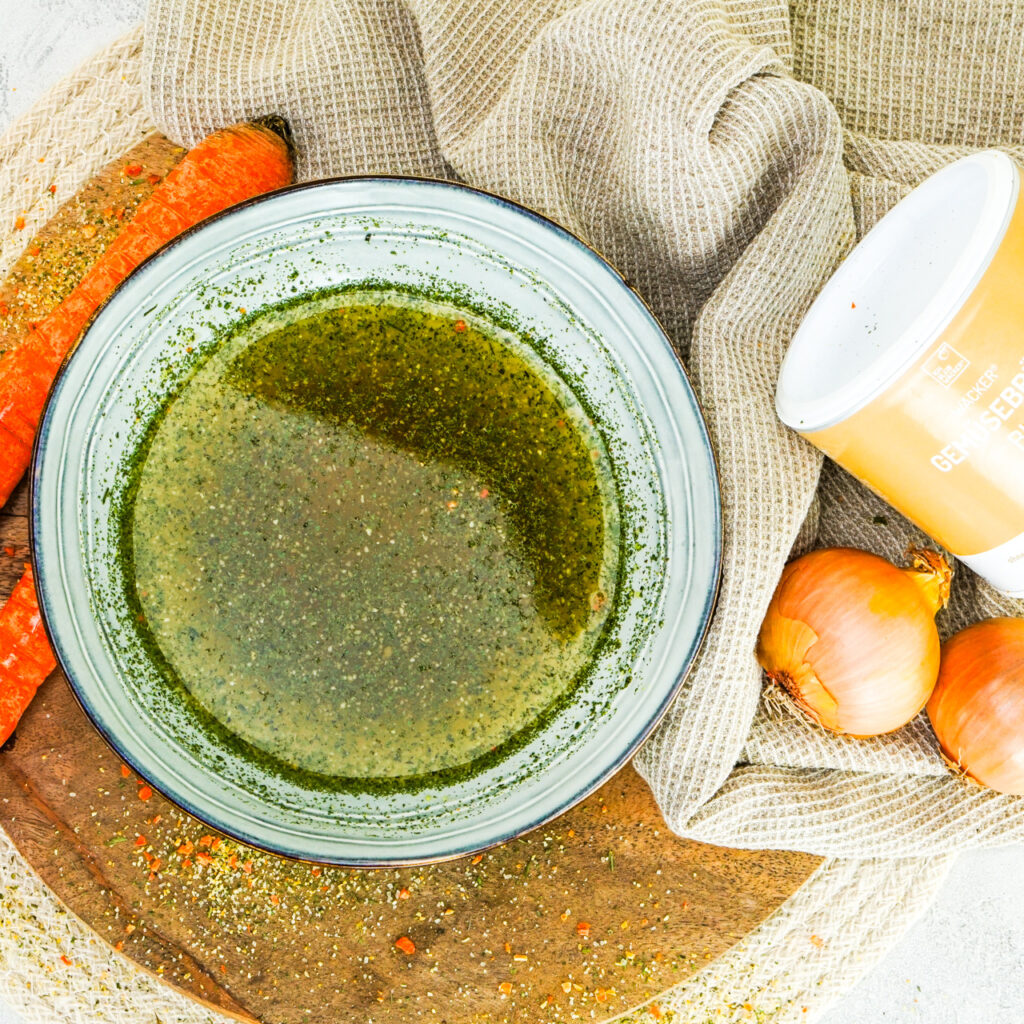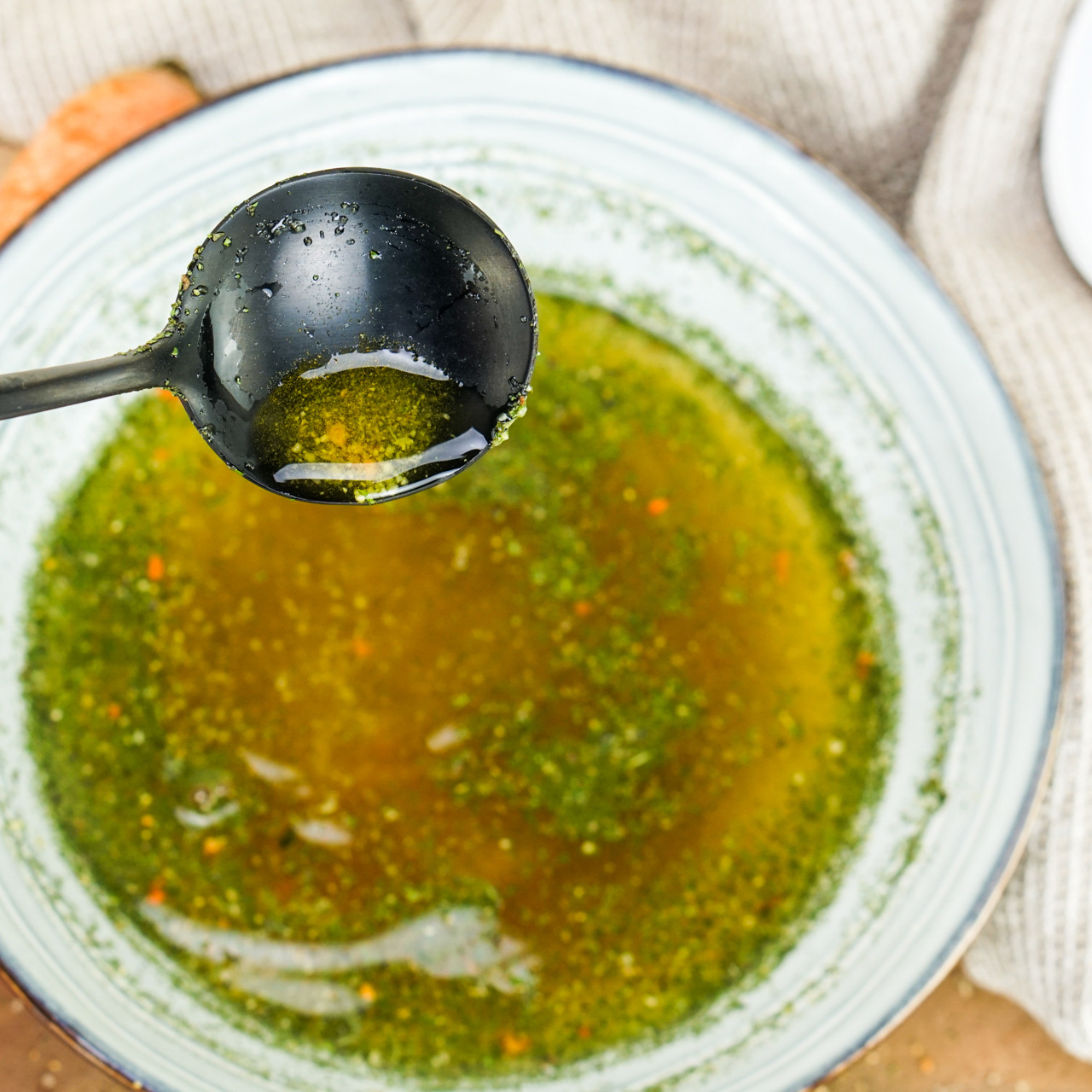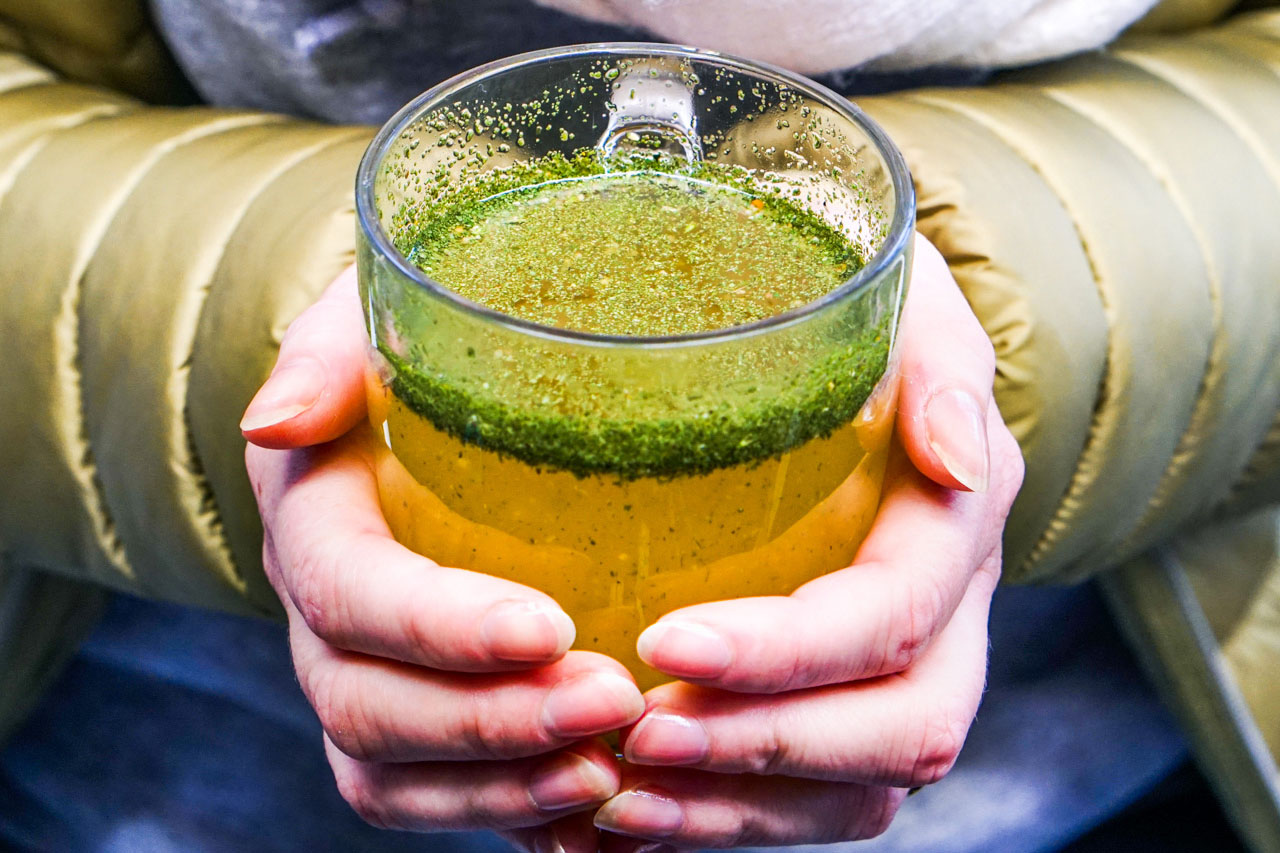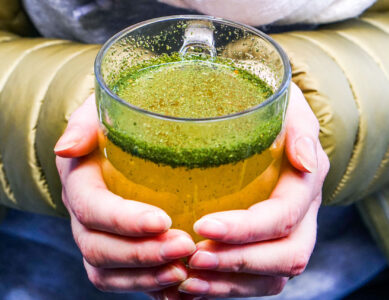Advertorial. Vegetable broth sounds super healthy at first - after all, it only contains vegetables and salt. For many, it serves as a tasty base for a wide variety of soups and sauces, to give your favourite dishes a spicy flavour or to let you enjoy it purely infused with water. What you probably don't think about with the basic is flavour enhancers, aromas, sugar and colourings.
But most commercial vegetable broths contain many of these ingredients and the vegetable content, on the other hand, is very low.
What do the ingredients in most vegetable broths look like?

If you look at the ingredient list of a vegetable broth from the supermarket, you will most likely find some of the following ingredients:
- Flavour enhancers such as glutamates, guanylates and inosinates (recognisable by the E-numbers from 600)
- Flavours
- Dyes (the E numbers from 100)
- Preservatives (E numbers from 200)
- Hydrogenated oils, mostly palm oil
- Iodised salt
- Wort from wheat
- Garlic
- Sugar
- Glucose syrup
- Maize or rice starch
- Rice syrup
- Yeasts
- Thickening agents such as locust bean gum (E numbers from 400)
- Celery (only of concern for allergy sufferers)
If you now think that buying organic vegetable broths solves the problem, you are wrong: even in broths from health food shops and natural food shops there are yeasts, corn or rice starch and some products even contain sugar.

What is so bad about these ingredients?
Misleading labelling of flavour enhancers
There are so-called flavour-enhancing ingredients, which may also contain some artificial flavour enhancers because these do not have to be defined by law. Flavour-enhancing ingredients include, for example:
Yeast extract
Wort
Soy protein
These ingredients contain glutamic acid, which does not have to be declared as an additive. Glutamic acid and its salts, the glutamates, are considered flavour enhancers according to the Additive Approval Ordinance. So next time you see the words "without flavour enhancers" on a vegetable broth, look again.
Real vegetables or just flavours?
Flavourings can completely replace certain ingredients in a vegetable broth and deceive our taste. This is because the flavouring can be made from a completely different food than the one it tastes like. In conventional vegetable broths you can often find the term "Aroma" in the list of ingredients. This indicates that it has been chemically produced. However, natural aroma or natural flavouring can also be found in organic vegetable broths.
These contents are obtained from plant, animal or microbiological raw materials, such as microorganisms or moulds. For example, a vegetable broth that at first glance appears to be of high quality may have "natural flavouring" in its list of ingredients. This natural flavour may also be derived from other natural raw materials and the taste of vegetables may only be imitated. This can lead us to become accustomed to artificial more intense tastes that no longer have much to do with a natural taste. Unprocessed fruit and vegetables then suddenly taste only bland and boring.
Sugar
We know that sugar is unhealthy. Rice and glucose syrup also have a sweetening effect and contribute to the sugar content. We ask ourselves why we should unnecessarily increase our sugar consumption with vegetable broth.
Palm oil - not as harmless as it sounds
Palm oil is also a common ingredient in both conventional and organic products. Palm oil is extracted from oil palms, most of which grow where rainforests naturally occur. Due to oil palm cultivation, large areas of rainforest are cleared, which leads to ecological and social problems. However, palm oil is not only problematic for the environment, but also for our health: the refining of palm oil produces increased amounts of fat pollutants, and the substance 3-MCPD is even possibly carcinogenic.
What can we learn from this?

Organic doesn't necessarily mean healthy, and in our case organic vegetable broth doesn't necessarily mean pure and good vegetable broth. We wanted to do things differently: Delicious and healthy is also possible without all these ingredients. Our vegetable stock contains 56% vegetables, 36% rock salt and 8% herbs and spices, nothing else.
Vegetable broth without salt?
For those who would like to do without salt completely, we have our Organic vegetable mix developed. This consists exclusively of vegetables and contains only the salt that is naturally present in the ingredients (onions, carrots, etc.).





Good morning,
is the high salt content necessary? A diet that is as salt-free as possible is demanded. Why then this added salt?
With kind regards
Charlotte Köbke
We have a much lower salt content in our vegetable broth than is usual on the market. 36% may seem high at first, but that refers to the dry product. If you use one tablespoon of broth per litre, it is not that much in the finished dish. If this is still too much for you, you can also use our vegetable mix or mix it with the broth. We don't use any salt at all in the vegetable mix 🙂
Hello Mrs Köbke,
A SALT-FREE diet is life-threatening! Salt is vital! It regulates the water balance. It is important for digestion. It is extremely important for the muscles to be able to do their work. You need more salt in summer, for example, when you sweat a lot or when you do physically strenuous work. There is also a higher need for salt in the case of diarrhoea - salts are a component of electrolytes.
Salt deficiency symptoms:
reduced mental capacity
Memory disorders and attention deficits
Gait unsteadiness and balance disorders
Dizziness
Nausea
Vomiting
Headaches, muscle aches and/or confusion
Many greetings
State-approved and certified nutritionist
Christiane
Nothing to add to that!
Table salt (NaCl) is vital!
Hello 🙋 I agree with you, it's just a shame that I'm struggling with my blood pressure. Everyone says reduce salt. I now take algae salt and make it into Kreuter salt. In love💞 be blessed🙏
Hello Michael,
Yes, we humans eat quite a lot of salt. That's also because it's often found in products where you wouldn't expect it. But salt also tastes good 🙂 If you really don't want any salt in your soup, for example for health reasons, we also have a vegetable mix without salt 🙂
Many greetings
Fabienne
Hello dear Wacker team,
that sounds very interesting to me.
I will try the vegetable broth with my next muesli order and give you a feedback then.
Many greetings
Hello dear Angela,
we are already curious what you have to say about it 🙂
Kind regards
Lorena from the Wacker Team
The wacker vegetable broth tastes very good. A potato salad with the broth is a hit. I like to take it to the office. A cup of vegetable broth in between meals is great, fills you up and warms you up.
Oh yes, potato salad with broth is so yummy 🙂 .
Just discovered your offer of "Wacker-Broth" 100 percent organic.
For years I have been trying to find foods that contain no salt or very little. (e.g. salt-free but still
good tasting bread in Cologne).
Vegetable or poultry broth is really a problem. I have to agree with the question above: Why everywhere and always
add so much salt, when we should only eat a maximum of 6 g a day - even with organic products.
Yes, we need salt, but not in these quantities! Many things can be replaced by herbs.
And importantly, there are some diseases that significantly worsen kidney values due to so much salt.
There are salt-free instant broths, but they taste like nothing again.
But I'll be happy to try your - somewhat expensive - broth!
Dear Anna,
that's exactly how it is. Herbs also add flavour and provide additional minerals, vitamins and secondary plant compounds.
We're glad you want to try our vegetable broth and we're excited to see how you like it 🙂 .
If you don't just eat/drink BECAUSE it's mealtime but listen more to your own body, you can see that →evolution← has developed something over thousands of years that we usually call "appetite".
Only: This message of the human metabolism would first have to be perceived and quite often also fulfilled (one could call it "training"). After some experience in the "tastes" of food and drink, i.e. with the years of life, healthy appetite develops. It is important that parents set an example in the toddler phase and make sure that addictive substances (sugar/sugar-containing substances, alcohol) are avoided or at least kept to a minimum and that the essentials → protein, fat, minerals are given sufficient space. For example, there are no essential carbohydrates!
Hello,
i make my own vegetable stock:
Leeks, onions, carrots, celery, parsley, salt (no sea salt because of the plastic), chives and a small amount of garlic, some ground pepper and a little sugar to round off.
Wilfried Ahlert
Also an option, sounds delicious! Whereby we would do without the sugar 🙂
Moin,
there is also certified microplastic-free salt. I use it in my soup kitchen. It is extracted on Sylt and is also used here. Sylt sea salt.
20 years ago, I would have probably grabbed it too, but I've also been making my own vegetable broth powder now for very many years, from 17 different vegetables and herbs.
Shredded and dried, 5 kg of it yields about 1 kg of powder, which I then finely mix with 200 g of primal salt. That will last for quite a while.
Hello Utee,
make it yourself is of course also a good option and for many who have the time and enjoy it, a good alternative 🙂
Many greetings
Fabienne